On the occasion of the forthcoming State Visit to Viet Nam by His Majesty King Jigme Khesar Namgyel Wangchuck of Bhutan and Her Majesty the Queen, Nguyen Thanh Hai, Ambassador of Viet Nam to India concurrently accredited to Bhutan, granted an interview to The World & Vietnam Report, highlighting the historic significance of the visit as well as the favorable conditions for strengthening mutually beneficial cooperation in the future.
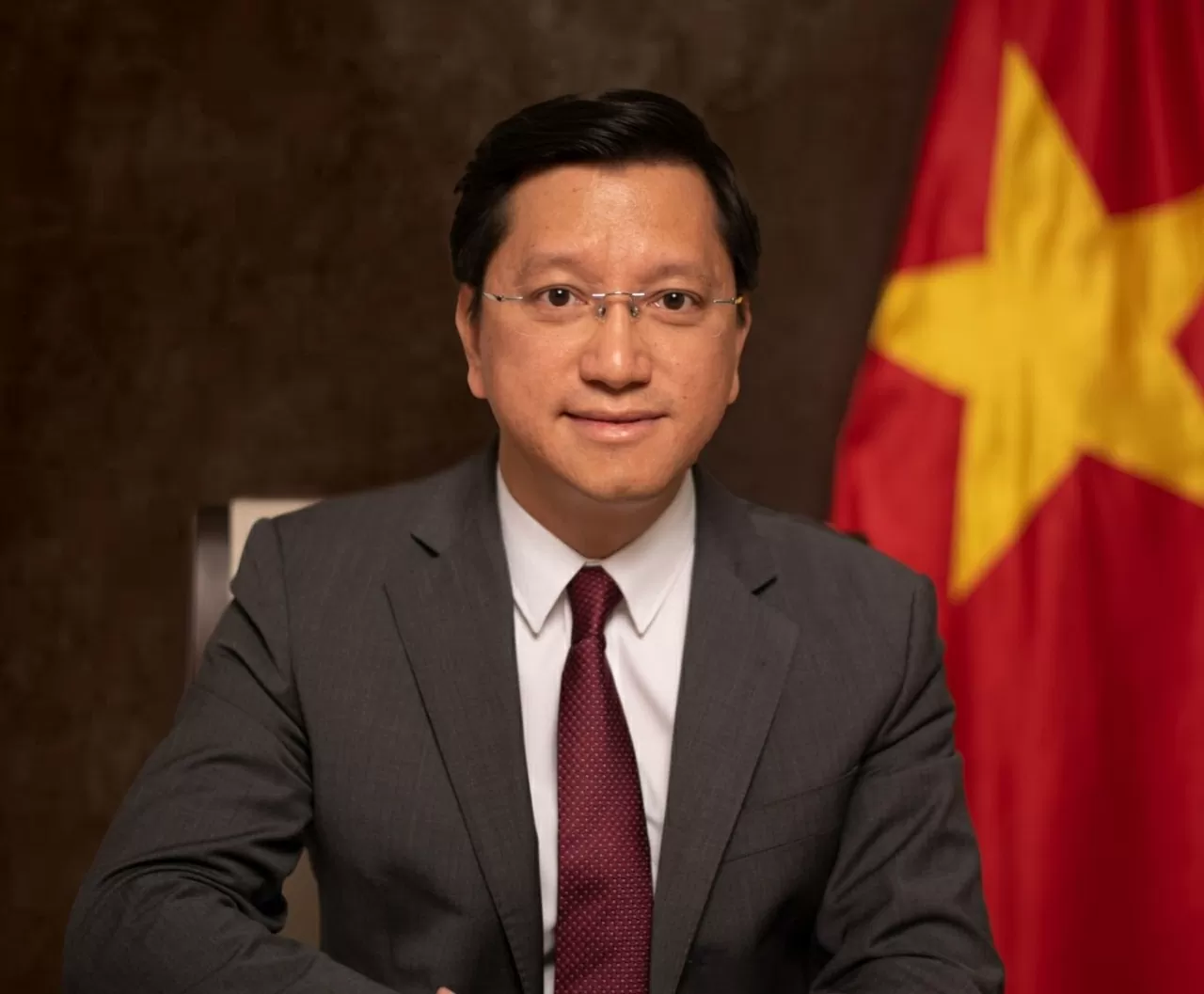
Could you share the purpose, significance and importance of His Majesty the King of Bhutan’s State Visit to Viet Nam?
At the invitation of President Luong Cuong, His Majesty King Jigme Khesar Namgyel Wangchuck of Bhutan and Her Majesty the Queen will pay a State Visit to Viet Nam from 18 to 22 August.
This visit is of special importance and historic in nature, marking the first time that the King of Bhutan visits Viet Nam, 13 years after the two countries established diplomatic relations in 2012.
The visit not only demonstrates Bhutan’s high regard for Viet Nam’s robust development and the multifaceted cooperation between the two countries, but also vividly reflects Viet Nam’s foreign policy line of independence, self-reliance, diversification and multilateralization of external relations for peace, cooperation and development.
This is an important opportunity to shape and further deepen bilateral relations. It is expected that the leaders of the two countries will discuss and chart the course for the bilateral relationship and identify priority areas of cooperation in the time ahead. The two sides will exchange experiences in national governance and socio-economic development in tandem with enhancing people’s welfare, preserving cultural identity and protecting the environment.
I am confident that the visit will open a new phase of cooperation, contributing to making the friendly relations between Viet Nam and Bhutan increasingly effective and substantive for the benefit of the two peoples, and to peace, stability and prosperity in the region and the world.
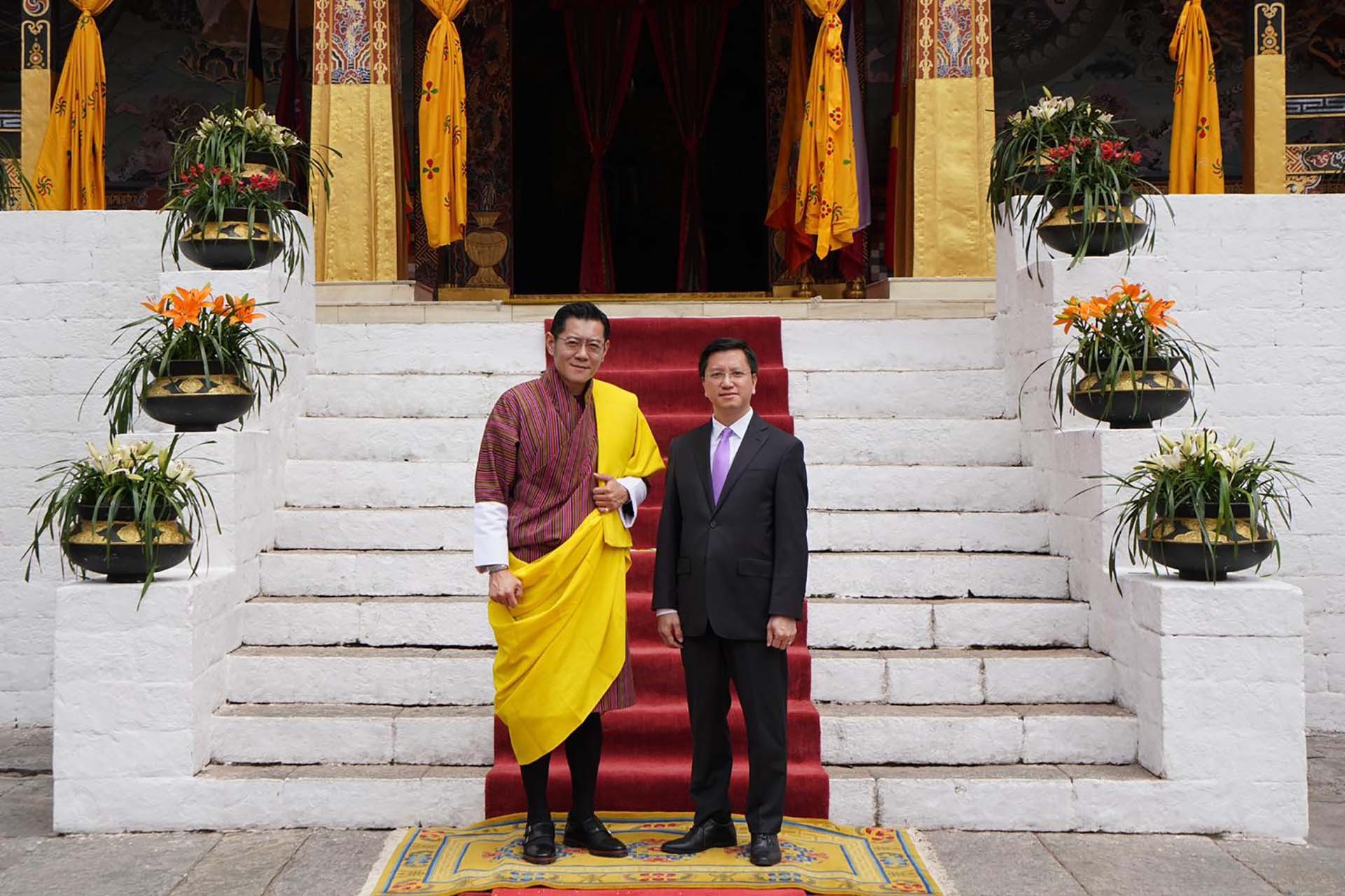
Could you share the key highlights of Viet Nam–Bhutan relations since the establishment of diplomatic relations in 2012?
Viet Nam and Bhutan established diplomatic relations in January 2012. Since then, the friendly relations and cooperation between the two countries have developed positively.
Leaders of the two countries regularly exchange letters and messages of congratulations on major occasions; the early appointment of ambassadors after the establishment of relations has contributed significantly to promoting bilateral cooperation. Viet Nam and Bhutan also coordinate closely and support each other at many international forums, especially at the United Nations. Prior to this visit by His Majesty King Jigme Khesar Namgyel Wangchuck, Her Majesty the Queen Mother Gyalyum Dorji Wangmo Wangchuck visited Viet Nam in 2022, on the 10th anniversary of diplomatic relations.
Tourism cooperation has been a bright spot in bilateral ties. Many Vietnamese travel to explore Bhutan, a country famed for measuring development by the Gross National Happiness index, with magnificent natural landscapes and Buddhist temples. At the same time, an increasing number of Bhutanese are traveling to Viet Nam. The Bhutanese airline’s operation of 10 scheduled round-trip flights in 2025 has played an important role in meeting the demand of Bhutanese visitors to Viet Nam.
Although investment and trade cooperation remain modest, more and more Vietnamese businesses are seeking opportunities in Bhutan. At present, Viet Nam has one investment project in the fields of interior furnishings and construction operating in the country.
Given the strong growth of both nations, the potential for cooperation remains wide open, promising further substantive and effective progress.
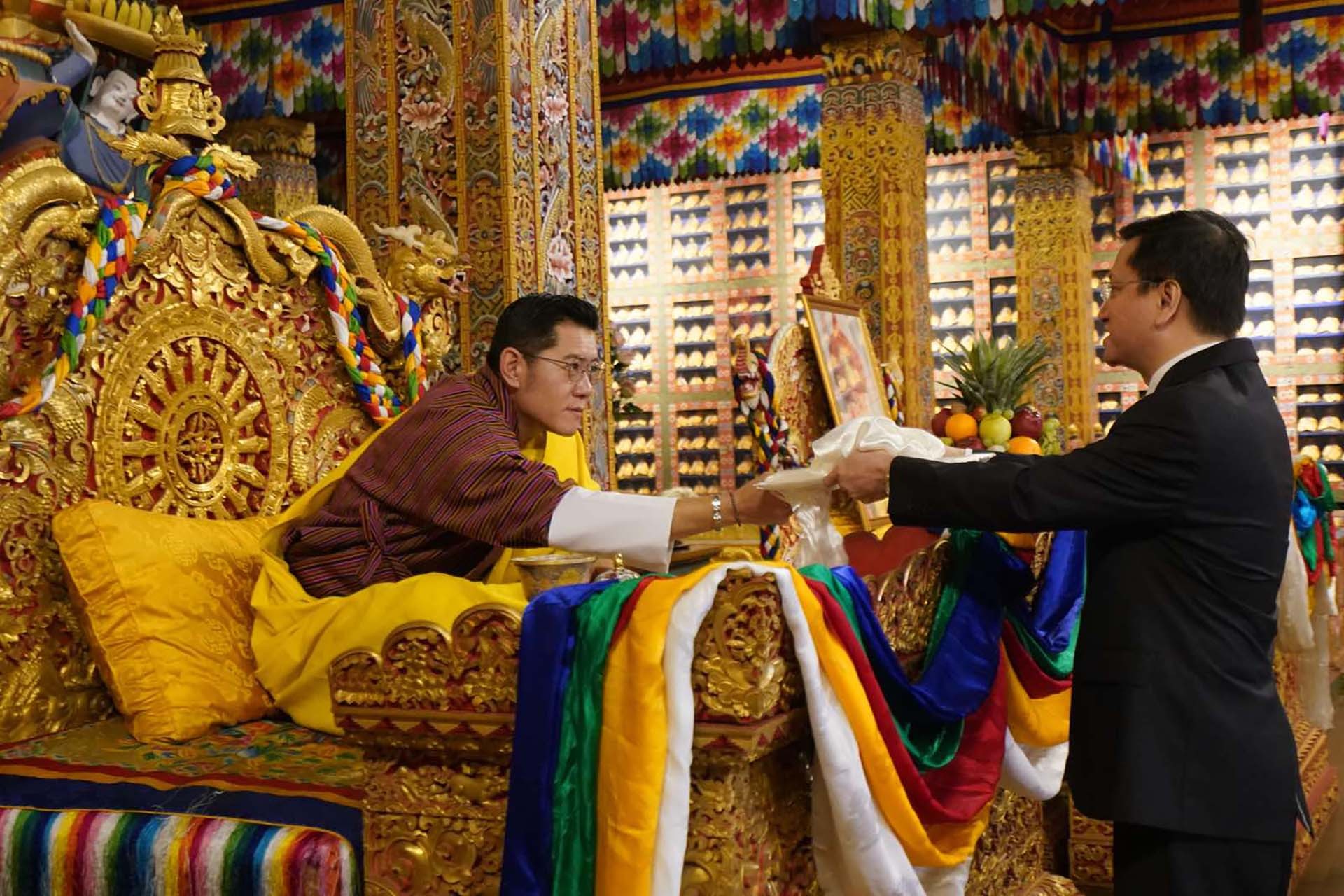
In your view, what should Viet Nam and Bhutan do to strengthen cooperation and leverage each side’s strengths?
Viet Nam and Bhutan enjoy many advantages for enhancing mutually beneficial cooperation.
First, Viet Nam and Bhutan share the Buddhist faith, which provides a favorable basis for people-to-people exchanges and the promotion of tourism, including spiritual tourism.
Second, the two countries share philosophies of national development. While Bhutan uses the Gross National Happiness (GNH) index to measure development, Viet Nam also places people at the center of development. Both countries attach importance to economic growth in tandem with preserving traditional values, protecting the environment and advancing sectors that deliver public welfare, especially education and healthcare.
Third, both Bhutan and Viet Nam are undergoing strong reforms for development, and the need for international cooperation is increasing. In particular, Bhutan welcomes investment by Vietnamese enterprises and major corporations in the Gelephu Mindfulness City (GMC) project—an administrative special zone under development with many open and preferential policies, combining green growth objectives in harmony with nature to bring prosperity and well-being to the people.
The Government of Bhutan is also interested in Viet Nam’s development experience in agriculture, food processing, freshwater aquaculture and the manufacture of electrical equipment; it wishes Vietnamese enterprises to consider investing in infrastructure development and hydropower in Bhutan.
To promote cooperation and make the most of each side’s strengths, the two countries need to soon establish frameworks and cooperation mechanisms across multiple fields. At the same time, enhancing air connectivity—especially opening a direct air route between Viet Nam and Bhutan—will facilitate people-to-people exchanges and business activities. In parallel, it is necessary to step up promotion of tourism, investment and trade, thereby increasing mutual understanding and expanding opportunities for business cooperation.
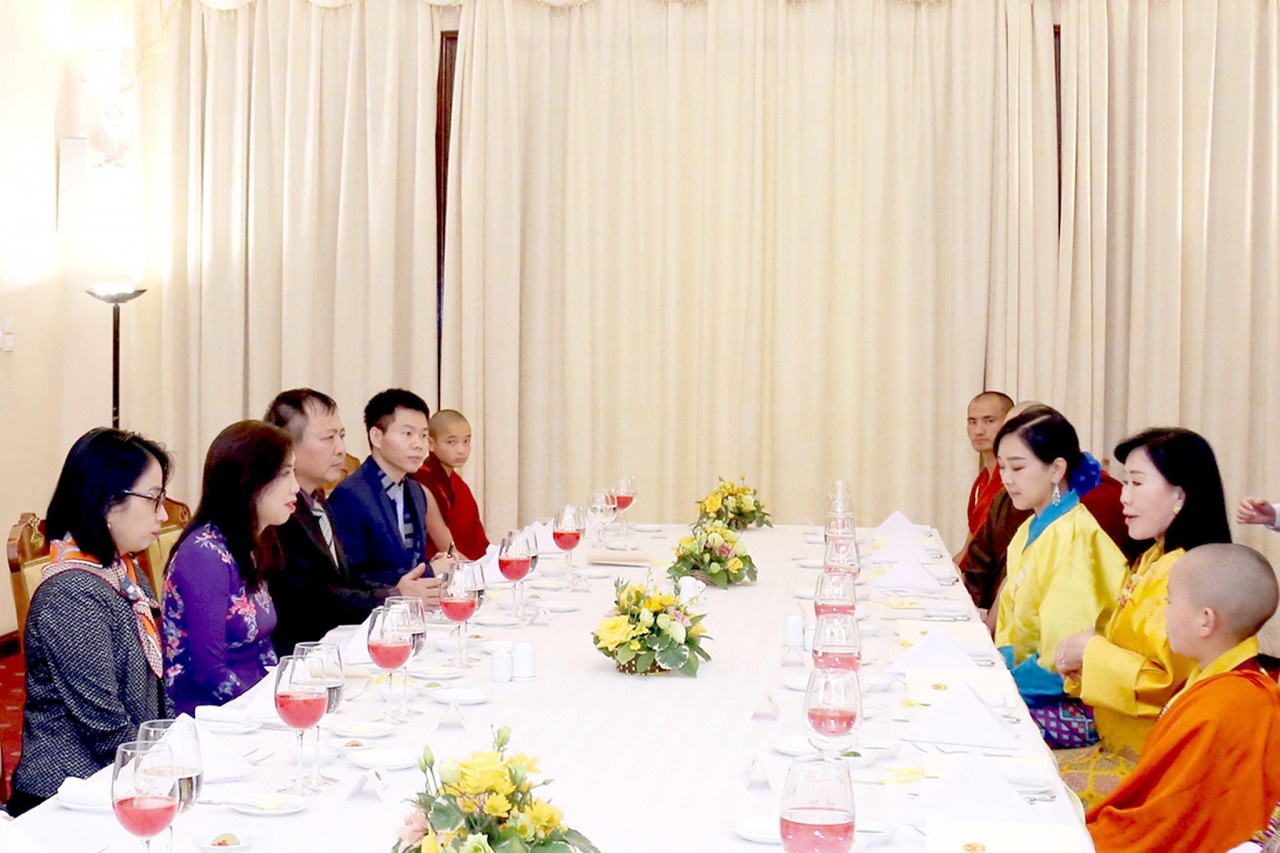
Do you have any particular impressions or memories of Bhutan, which is known as the happiest country in the world?
My strongest impression of Bhutan is the harmonious combination of traditional values and an innovative spirit.
When you come to Bhutan, you will see people wearing traditional attire in daily life and in the workplace. Traditional architecture is also maintained and integrated into modern constructions. Bhutan’s key industries are environmentally friendly, such as hydropower and eco-tourism.
At the same time, Bhutan has promoted breakthrough projects that combine the philosophy of Gross National Happiness (GNH) with technological progress. In this regard, Bhutan pays special attention to developing the digital economy and innovation, building e-government and cashless payment infrastructure. Bhutan has allowed the voluntary use of Bitcoin as a means of payment in the tourism sector.
Notably, the Gelephu Mindfulness City project initiated by His Majesty King Jigme Khesar Namgyel Wangchuck in 2023 has brought a strong wave of innovation to Bhutan. The project not only attracts investment and creates jobs, but also serves as a testbed for a new development model in which technology, clean energy and modern architecture are harmonized with Bhutan’s spiritual dimension and environment.
In short, Bhutan innovates without abandoning the past; rather, it preserves and promotes traditional values in a more modern way. At the same time, Buddhist culture, national identity and the GNH philosophy are seamlessly embedded in the country’s innovation initiatives.
Thank you, Ambassador!

“I am confident that the visit will open a new phase of cooperation, contributing to making the friendly relations between Viet Nam and Bhutan increasingly effective and substantive for the benefit of the two peoples, and to peace, stability and prosperity in the region and the world.” (Ambassador Nguyen Thanh Hai)




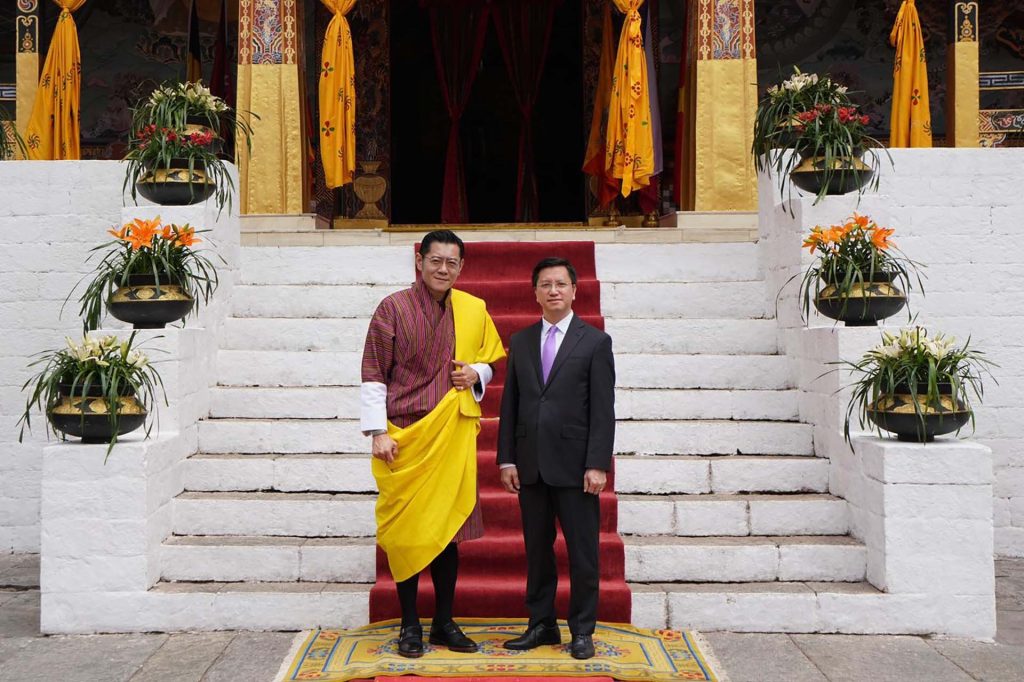
Related Post